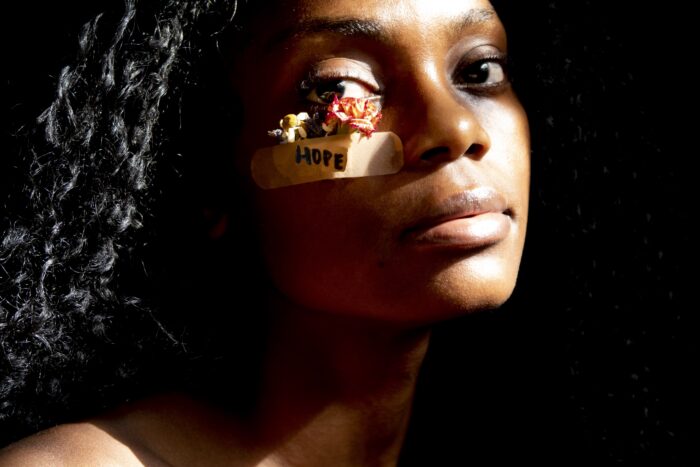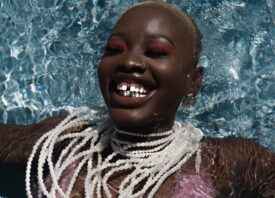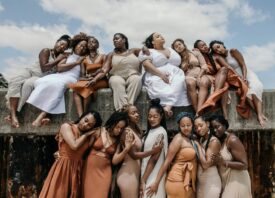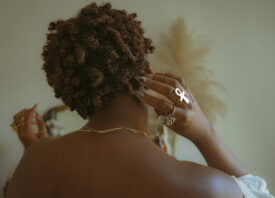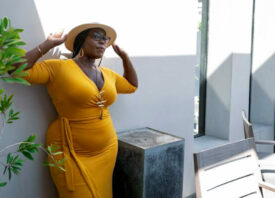Search this site
‘Our Black Experience’: A Historic Exhibition by Black Women Photographers
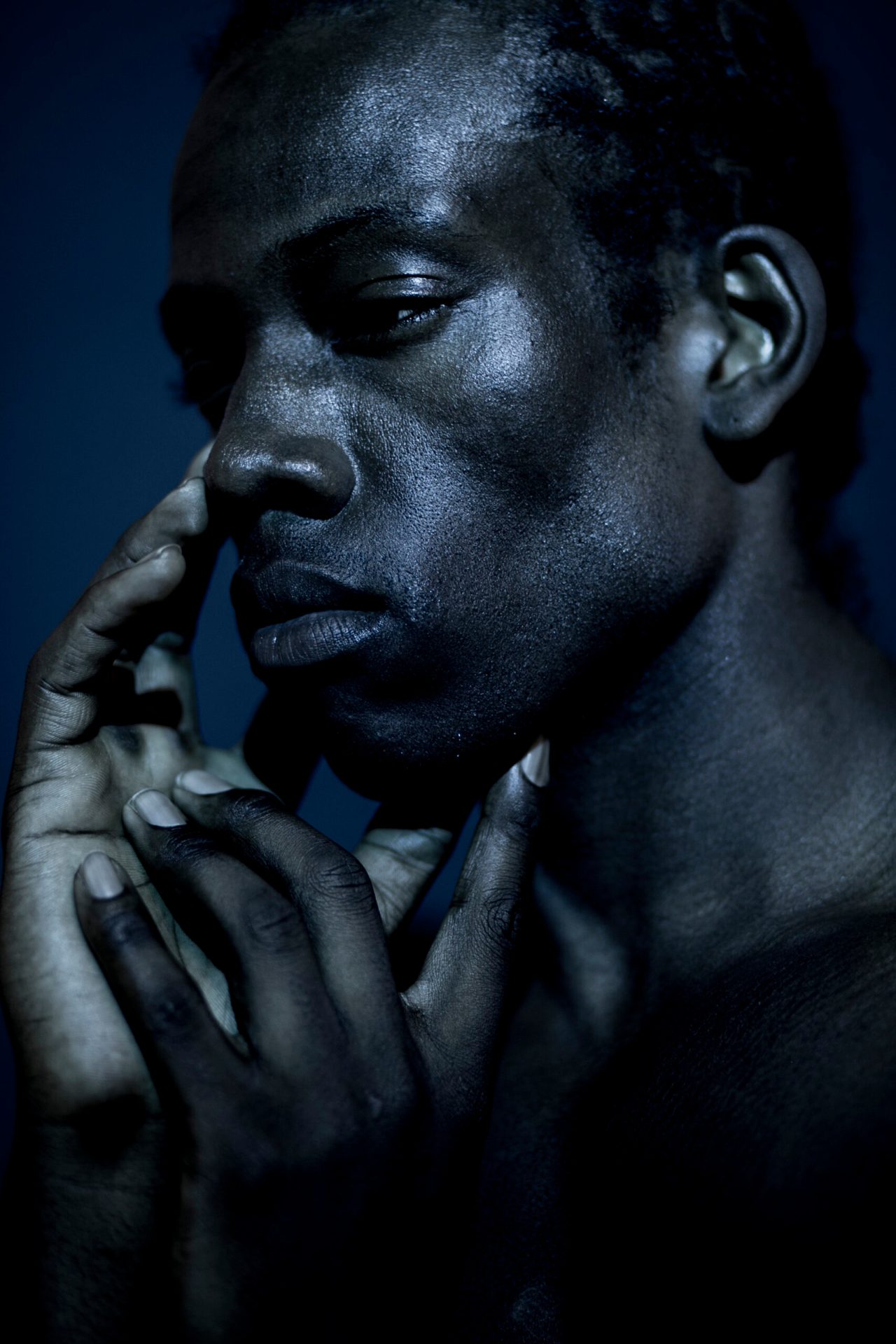
Last February, a group of artists—all members of the worldwide community Black Women Photographers—got together in Los Angeles for a studio meetup hosted by Amari Dixon and Jessica Bethel. It was during that session that Kelli Scates photographed Jerry, standing under the glow of gelled lighting. In the portrait they made together, Jerry, the model, looks like he’s bathed in starlight—as infinite as the cosmos. At the time, the artist wrote, “Black men, I see you and I love you in all your glory.”
Scates’s portrait of Jerry, titled Sentimental Moon, along with work by twenty more photographers and members of the Black Women Photographers community, is on view as part of Our Black Experience, an exhibition curated by Dixon and Bethel. Black Women Photographers was founded by the photographer Polly Irungu in 2020; this exhibition marks a historic milestone. The selected work defies boundaries, spanning genres such as portraiture, fine art, documentary, and beyond, but each of these photographers has come together under one roof as part of one show.
“The overarching theme was showcasing each artist’s Black Experience,” Bethel says. “That could look like families, friendships, the day-to-day, and our Black culture. Once curating the work, we looked for these common themes and began to tie them together. The artists’ individual Black experience connects us all in the end.”

Lauren Todd’s photograph, After Skid Row, took Bethel’s breath away. Granni, the woman in the portrait, is a former Vogue model and motorcyclist. She rides horses without a saddle. At the time of that picture, Granni had recently moved into an apartment after living on Skid Row for ten years. “Skid Row in Los Angeles is where the unhoused population lives, and it’s very tough to make it out or even alive,” Bethel said. In Todd’s picture, a portrait of resilience and strength, Granni’s looking at herself in the mirror. She’s illuminated by the soft rose glimmer of a nearby lamp.
The stories on the walls of this exhibition are as personal as they are universal, specific to the locations and times they document. Along Crenshaw Boulevard in Los Angeles, Alexis Hunley celebrates the legacy of Black families, watching babies in strollers and young children on skateboards; there, she met Amanda and Quincy, as they awaited the arrival of their first child. In Harlem, New York, Kate Sterlin spots a mother out for a walk on a Sunday morning. On a cool autumn day, Amber Clemons watches the sun peek over East Chicago in the early hours.
I asked Bethel and Dixon whether or not they ever saw an exhibition like this one when they were emerging photographers themselves. “Honestly, I never saw this while I was entering my career or growing up,” Bethel responded. “I never saw this type of representation and community that Polly [Irungu] created with Black Women Photographers. It honestly would’ve meant the world to see representation like this.
“I was generally the only Black woman, sometimes, the only Black person in a photography setting, especially academically. This is motivation to keep creating spaces and work that represents us.”
For Dixon, seeing Scates’s portrait of Jerry, made more than nine months ago during that Black Women Photographers meetup in Los Angeles, was one highlight of many. “It was wonderful to see how the community works full circle,” she told me. The print for Sentimental Moon sold on opening night. “Celebration and giving each other flowers was the main purpose,” Bethel said.
You can see Our Black Experience: Stories from Black Femme, Queer, Non-Binary, and Transgender Photographers at The Perfect Exposure Gallery in Los Angeles through December 3rd. Exhibiting artists include Alexis Hunley, Amari Dixon, Amber Clemons, Anisa Williams, Debra Orols, Gabrielle Hudspeth, Hanna Leka, Jessica Bethel, Kate Sterlin, Kayla Oaddams, Kelli Scates, Lauren Todd, Melissa Johnson, Nathalie Gordon, Nia Symone, Oluchi Enemanna, Phylicia J. L. Munn, Taizja Marie Tate, Valley, Zaria Love, and Zoe Law. The exhibition will travel to more cities worldwide in the new year.








